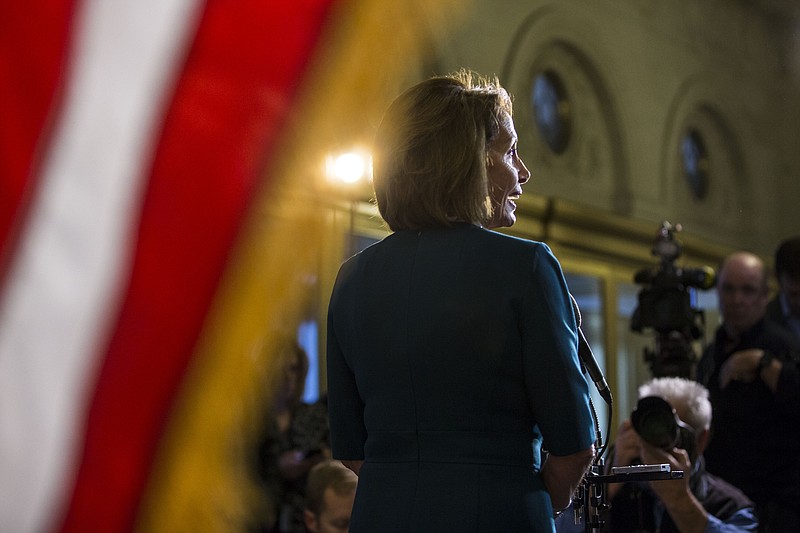Since Election Day the great intra-Democratic debate over What Went Wrong has been dominated by two visions of how liberalism should be organized - identity politics versus economic solidarity.
This is an interesting and fruitful debate, but it has been mostly a debate about two different ways of being (sometimes very) left-wing. There has been much less conversation about the ways in which the Democratic Party might consider responding to its current straits by moving to the right.
It's what Democrats did, slowly but surely, after the trauma of Ronald Reagan's triumphs; it's what Bill Clinton did after his 1994 drubbing; it's what Rahm Emanuel and Howard Dean did, to a modest degree, on their way to building a congressional majority in 2006.
And it's also what Donald Trump did on his way to stealing the Midwest from the Democrats this year - he was a hard-right candidate on certain issues but a radical sort of centrist on trade, infrastructure and entitlements, explicitly breaking with Republican orthodoxies that many voters considered out of date.
If the idea of moving rightward seems distinctly strange to today's Democrats, it's partially because until this rude awakening, much of liberalism was in thrall to demographic triumphalism: convinced that the party's leftward drift under President Barack Obama and candidate Hillary Clinton was in line with the drift of the country as a whole, and confident that with every birth and death and naturalization and 18th birthday their structural advantage would only grow.
The Democratic coalition is a losing coalition in most states, most House districts, most Senate races; the party's national bench is thin, its statehouse power shattered, its congressional leadership aged and inert.
So the incentives are there to look for issues where Democrats might plausibly move rightward, back toward voters they have lost. And so are the issues themselves.
For instance: Democrats could attempt to declare a culture-war truce, consolidating the gains of the Obama era while disavowing attempts to regulate institutions and communities that don't follow the current social-liberal line. That would mean no more fines for Catholic charities and hospitals, no more transgender-bathroom directives handed down from the White House to local schools, and restraint rather than ruthlessness in future debates over funding and accreditation for conservative religious schools. Without backing away from their support for same-sex marriage and legal abortion, leading Democratic politicians could talk more favorably about moral and religious pluralism, and offer reassurances to people who feel themselves to be dissenters from a very novel cultural regime.
Democrats could also talk anew about the virtues of earned benefits, about programs that help people who help themselves, about moving people from welfare back to work. This (Bill) Clintonian rhetoric hasn't entirely disappeared from the party, but it has diminished, and some of the Trumpian (and pre-Trumpian) backlash against liberalism in white working-class communities was associated with welfare programs - disability rolls, food stamps, Medicaid - that seem to effectively underwrite worklessness at a time of social disarray. It would not require Democrats abandoning their commitment to the social safety net to foreground programs more directly linked to work and independence, and to acknowledge the problems of dependence and stagnation associated with no-strings-attached support.
These shifts would require asking both identitarian and populist liberals to compromise some of their commitments, to accept that open borders and desexed bathrooms and a guaranteed income and mass refugee resettlement will remain somewhat-radical causes rather than simply and naturally becoming the Democratic Party line.
This is a hard ask. And it's made much harder by the fact liberals spent the last four years telling themselves such compromises were not necessary anymore, that they belonged to the benighted 1990s and need trouble liberal consciences no more.
But that was a lie. And harder truths are what the buckling Democratic Party needs now.
